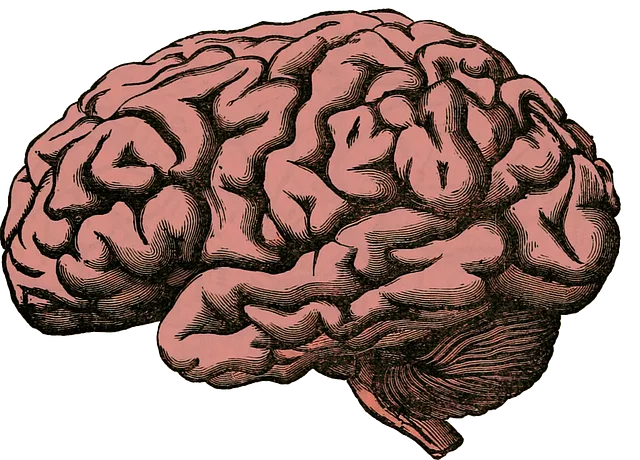Depression is a global concern requiring early intervention through identifying signs like persistent sadness and routine changes. The Kaiser Permanente mental health department phone number Boulder emphasizes understanding risk factors such as genetic predisposition, brain chemistry imbalances, and life events. Cultural sensitivity in healthcare plays a vital role in tailoring interventions for diverse backgrounds. Prevention strategies focus on lifestyle changes, including exercise, diet, sleep, relaxation, and social connections, with journaling and creative outlets as additional tools. The Kaiser Permanente Mental Health Department offers comprehensive services, crisis support, and cultural competency training via their phone number to empower individuals dealing with depression through CBT and other professional help.
Depression is a prevalent yet preventable condition. This article guides you through essential strategies to safeguard your mental well-being, empowering you to recognize depression’s signs and risk factors. From lifestyle modifications to accessing specialized support, we explore effective ways to enhance resilience. Discover the role of therapy and medication in preventive care, with insights from the Kaiser Permanente Mental Health Department in Boulder, available via their phone number to guide you towards healing.
- Understanding Depression: Recognizing Signs and Risk Factors
- Lifestyle Changes for Improved Mental Well-being
- Accessing Support: Kaiser Permanente Mental Health Department in Boulder
- Professional Help: Therapy and Medication as Prevention Tools
Understanding Depression: Recognizing Signs and Risk Factors

Depression is a complex mental health disorder that impacts millions worldwide. Recognizing its signs and understanding risk factors are crucial steps in prevention. According to the Kaiser Permanente mental health department phone number Boulder, early identification plays a pivotal role in effective treatment and management. Common symptoms include persistent feelings of sadness, loss of interest or pleasure in activities once enjoyed, changes in appetite and sleep patterns, fatigue, difficulty concentrating, and in severe cases, thoughts of death or suicide.
Several risk factors contribute to depression, including genetic predisposition, brain chemistry imbalances, hormonal changes, traumatic life events, chronic illnesses, substance abuse, and lack of social support. A Risk Assessment for Mental Health Professionals can aid in identifying individuals at higher risk, especially when coupled with Cultural Sensitivity in Mental Healthcare Practice. This approach ensures tailored interventions that consider unique cultural backgrounds, beliefs, and experiences.
Lifestyle Changes for Improved Mental Well-being

Many depression prevention strategies begin with significant lifestyle changes aimed at improving mental well-being. The Kaiser Permanente mental health department phone number Boulder can be a valuable resource for guidance and support. Simple yet effective alterations include prioritizing regular exercise, adopting a balanced diet, and ensuring sufficient sleep. Engaging in activities that promote relaxation, such as yoga or meditation, can also significantly enhance mental resilience. Additionally, fostering strong social connections and practicing open communication with loved ones are essential components of emotional well-being.
One powerful tool within the Self-Care Routine Development for Better Mental Health is journaling. Mental Wellness Journaling Exercise Guidance involves dedicating time each day to reflect on thoughts, emotions, and experiences. This practice not only helps in processing difficult feelings but also facilitates a deeper understanding of one’s emotional landscape. Furthermore, incorporating creative outlets like art or music can serve as Emotional Healing Processes, offering alternative means of expression and release for individuals looking to prevent or manage depression.
Accessing Support: Kaiser Permanente Mental Health Department in Boulder

If you’re located in Boulder and are seeking support for depression, reaching out to the Kaiser Permanente Mental Health Department is a significant step towards well-being. This department offers a comprehensive range of services tailored to individual needs, ensuring that residents have access to expert care. With dedicated professionals, they provide a safe space for individuals to discuss their mental health concerns.
The team at Kaiser Permanente understands the importance of community engagement and has implemented various programs like the Community Outreach Program to educate and connect with those facing depression. They also offer Crisis Intervention Guidance, ensuring that residents have immediate support during difficult times. Additionally, they prioritize cultural competency training for healthcare providers, allowing them to deliver empathetic care to a diverse range of individuals in Boulder.
Professional Help: Therapy and Medication as Prevention Tools

Depression is a complex condition that often requires professional intervention for effective prevention and management. Therapy, such as cognitive-behavioral therapy (CBT), has proven to be a powerful tool in combating depression. CBT helps individuals identify and change negative thought patterns, enabling them to develop healthier coping mechanisms and improve their overall well-being. The mental health department at Kaiser Permanente Boulder offers specialized services, providing accessible support for those seeking help.
In addition to therapy, medication can play a significant role in prevention. Antidepressant medications are prescribed based on individual needs, often in conjunction with therapy, to balance brain chemicals and alleviate symptoms. While these strategies may seem daunting, they are valuable tools available through the Kaiser Permanente mental health department, accessible by calling their Boulder location. Incorporating professional help into your wellness routine can foster resilience against depression and promote a more positive outlook, enhancing one’s ability to navigate life’s challenges with better coping skills, including improved social skills training and burnout prevention strategies.
In addressing depression prevention, a multifaceted approach is key. By understanding depression, recognizing signs early, adopting healthy lifestyle changes, accessing support from resources like the Kaiser Permanente Mental Health Department in Boulder (call [insert phone number here] for assistance), and seeking professional help when needed, individuals can significantly enhance their mental well-being. Combining these strategies empowers individuals to proactively manage their mental health and foster resilience against depression.






